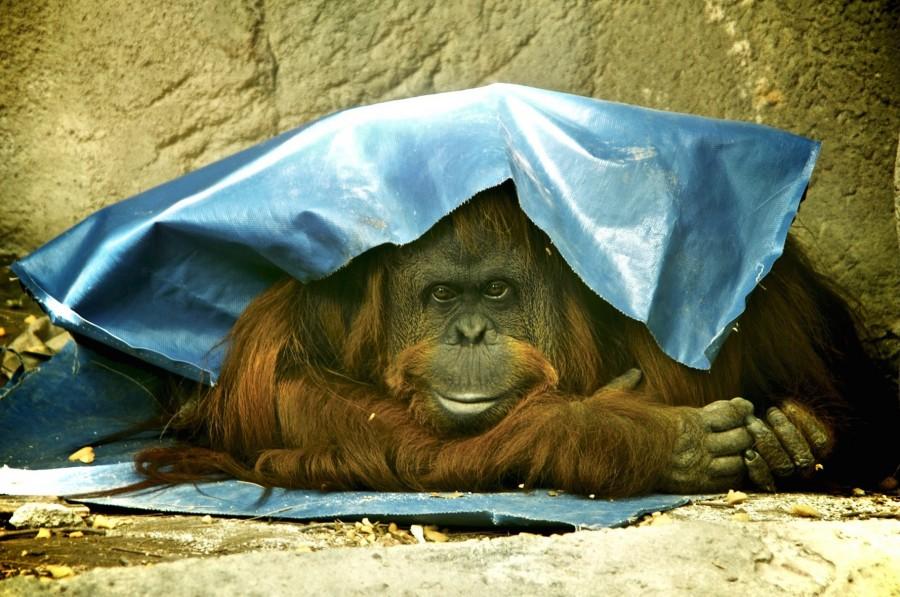Argentina Gives “Human” Rights to Ape
January 15, 2015
A few days before Christmas, a court in Argentina ruled that non-human persons can’t be kept in cages. The Court came to the conclusion that a Sumatran orangutan named Sandra is a non-human person with rights, and will no longer be held captive in the Buenos Aires zoo where she has lived for the last 20 years. It has been unlawfully deprived of its freedom in the zoo and has won the right to be transferred to a sanctuary. The basis of this decision was scientific data demonstrating cognitive function, thus the animal should not be treated as an object. The Association of Officials and Lawyers for Animal Rights filed a writ for habeas corpus on the ape’s behalf, Habeas corpus petitions are typically filed when a human is unrightfully detained or imprisoned. But animal rights groups say that intelligent, non-human primates should be given the basic rights of personhood as well.
Sandra was born nearly 29 years ago at a zoo in Berlin, Germany. For the last two decades, she has resided at the zoo in Buenos Aires. This lifetime of captivity is now coming to an end, as the court has decided she is free to leave the zoo and be relocated to a Brazilian wildlife sanctuary that will more accurately reflect the natural habitat of an Sumatran orangutans.
The Buenos Aires zoo has 10 days to file an appeal. If they don’t, it’s not as if Sandra the orangutan will be allowed to wander the streets or be released back into the wild. She may have the basic rights of personhood, but no one is saying she can live as a human. After a life in captivity, her chances of surviving in the wild would not be very likely. Instead, Sandra’s “freedom” will be in a sanctuary, where she can live with others of her species.
Though Sandra’s case was successful in Argentina, similar cases in the United States have not been. Most recently, a New York court decided that a Chimpanzee named Tommy, who is privately owned, did not qualify for legal personhood, and dismissed the case of habeas corpus that had been filed on his behalf. Even if the court had sided with Tommy, it legally would have just allowed him slightly more liberty beyond existing animal cruelty laws; it would not have made him a human person in the eyes of the court with all of the rights and responsibilities that accompany such a title. This is not the first case of Latin American countries of being proactive in Animal Rights legislation , Costa Rica became the first Country in the western world to ban public zoos last year. Many of the nations involved in fighting zoos today were run by military dictatorships up until the 1990’s. That means there were very few channels for activism for young people to join a cause without the risk of “disappearing.” Animal advocacy was conducted with more or less impunity.
This may have a large impact on zoos, water parks, circuses, scientific laboratories. Scientific data on the cognitive function of animals was also documented as part of the Cambridge Declaration on Animal Consciousness.The impact of such a shift in personhood laws globally could be significant in terms of Mans View of The other creatures with which he shares this Blue marble.
Cambridge Declaration on Consciousness
https://www.youtube.com/watch?v=W9QIOj3IYuk
